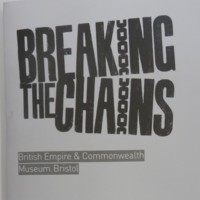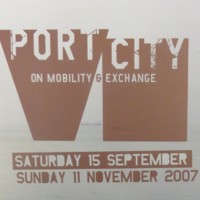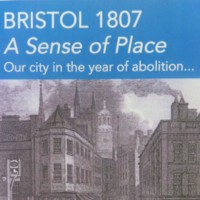4 results
Remembering 1807
In 1807 Britain legally abolished the slave trade, although it continued to participate in and profit from the institution of slavery. In 2007 the British government committed public funds to mark the bicentenary of the Slave Trade Act. The Remembering 1807 project has collected and archived material relating to the many events and activities that took place during 2007. These records help us to locate and understand the place of slavery, the slave trade and its abolition in the UK’s public history, commemorative traditions and popular memory. Background to the collection...

The Adisa Project: Bristol faces, Afrikan footsteps
The Adisa project gave a group of 20 young people of African and African Caribbean heritage the chance to investigate their roots both in Bristol and Africa. The group researched the history and legacies of Bristol's involvement in the trade in enslaved Africans, and its impact on one African…

Breaking the Chains
Breaking the Chains opened at the British Empire and Commonwealth Museum to coincide with the bicentenary, and told the story of the British transatlantic slave trade and its abolition. Developed in partnership with Bristol City Council's Museums, Galleries and Archives' Service, the exhibition used…

Port City: On Exchange and Mobility
Port City was a large-scale exhibition featuring over 40 international artists and addressing issues of migration, trade and contemporary slavery. Set in the arts centre and gallery Arnolfini, it was accompanied by a programme of art, music, film, literature and educational activities. Coinciding…

Bristol 1807: A Sense of Place
As part of the Abolition 200 programme, the Bristol 1807 project set out to explore the lives of ordinary Bristolians in 1807. An exhibition in the Central Library, and a series of touring exhibitions in Bristol's libraries and community centres explored society, culture, trade and travel in 19th…